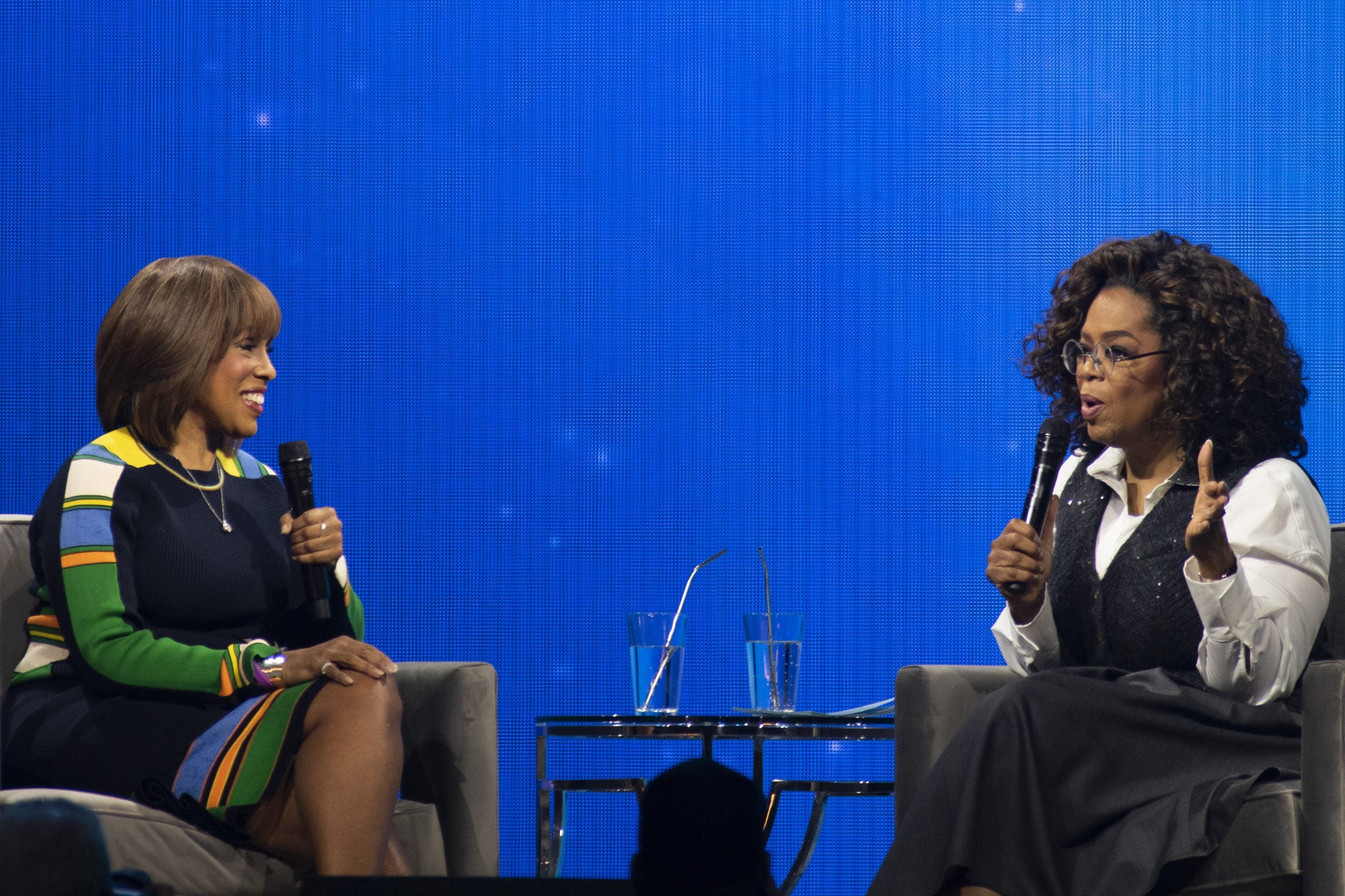
Gayle King is finally sharing more about how she felt after the swift and severe backlash she faced after interviewing a friend of the late Kobe Bryant, Lisa Leslie, and questioning her about his past rape allegation.
While a guest on Oprah Winfrey’s Your Life In Vision: 2020 Focus Tour in Denver last weekend, the CBS Morning Show host said the entire ordeal was “a very painful situation.”
“I have moved on,” King said onstage, according to People. “Is there a scab? Yeah. But I have moved on.”
“I put on my game face and my big girl pants, because I never lost sight of who I was, what I believe I am, and my intention. I’ve never lost sight of that. But it certainly was a learning curve, and it was very painful,” she continued.
King sat down with Leslie just days after Bryant was killed in a fatal helicopter crash on January 26 in which his 13-year-old daughter, Gianna, and seven others perished. Many celebrities called King to the carpet after she asked Leslie if Bryant’s legacy was “complicated” by his 2003 rape allegation, in which criminal charges were dropped and he settled out of court. The question made Snoop Dogg call her vile names on Instagram before issuing a public apology; Ari Lennox insulted her before apologizing as well; while 50 Cent and others continued to mock her credentials and question her integrity.
King previously acknowledged the sensitivity of the topic she was addressing in the interview in a written statement, where she accepted Snoop Dogg’s apology.
Onstage, however, Winfrey expressed her belief that one of the biggest sources of her friend’s pain was the absence of support from “good people.”
“In every circumstance, I think this is something for us to remember,” Winfrey began. “It’s not the people who are being mean, it’s not the badness, it’s not the vitriol that’s being put into the world, but it’s the good people who remain silent that becomes so hurtful.”
King added: “I think we can disagree politically, we can disagree socially, if you want to, but I just think humanity should prevail always.”
“I think we still have to figure out a way to navigate that with each other,” she continued. “That we can disagree, and you can be mad at me even, but you can’t speak to me the way I was spoken to and threatened.”